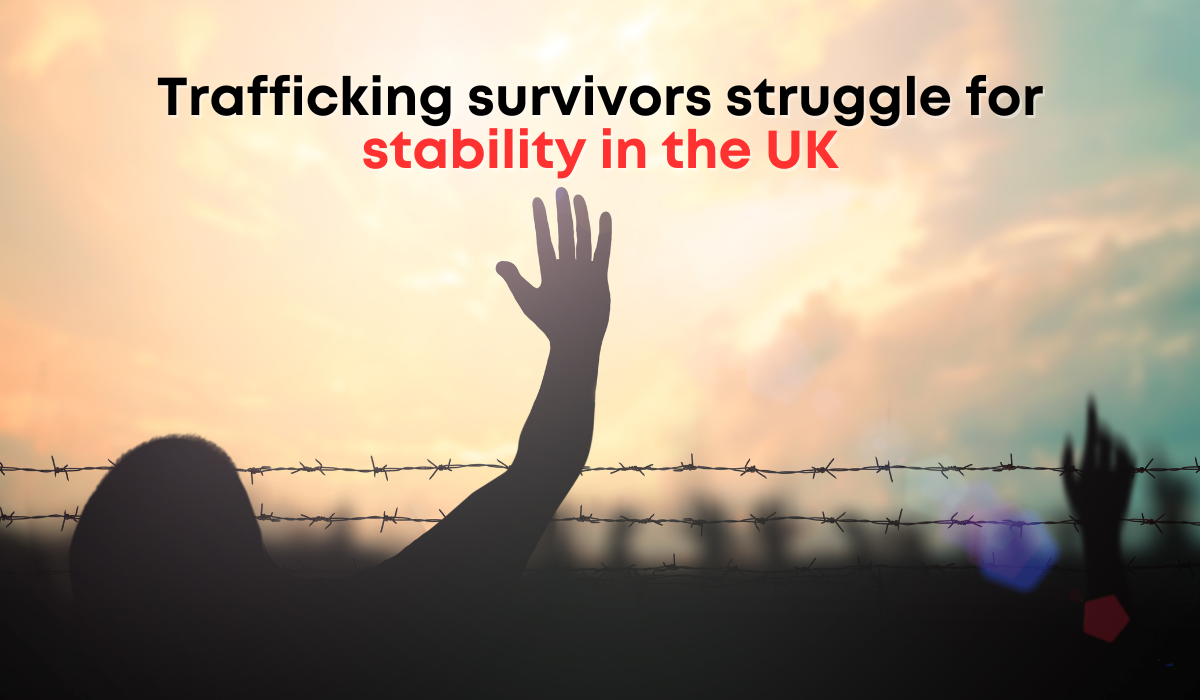In recent years, the UK’s process for identifying and supporting trafficking survivors has deteriorated, causing significant confusion and distress among those affected. Legal challenges have spotlighted flaws and unlawful practices within the Home Office’s policies, exacerbating the difficulties faced by these vulnerable individuals.
Inadequate Policy for Trafficking Survivors
The Council of Europe Convention on Action Against Trafficking in Human Beings (ECAT) stipulates that individuals identified as trafficking survivors should receive a renewable residence permit if their stay is necessary for their personal situation or to assist in criminal investigations. However, the Home Office’s interpretation of these requirements has become increasingly restrictive.
The policy update on 30 January 2023, aligned with Section 65 of the Nationality and Borders Act 2022, significantly tightened the criteria for granting Temporary Permission to Stay (VTS leave). Now, leave is only considered for assisting in recovery from harm if such assistance is unavailable in their home country, enabling pursuit of compensation if it cannot be done remotely, or facilitating cooperation with authorities if physical presence in the UK is essential.
Sharp Decline in Leave Grants
The Helen Bamber Foundation’s August 2023 report, “Leave in Limbo – Survivors of Trafficking with Uncertain Immigration Status,” highlights severe concerns about the minimal number of survivors granted leave to remain. In 2022, only 214 out of those who received positive conclusive grounds decisions were granted discretionary leave. Post-policy change in January 2023, the figures have plummeted further. Recent Freedom of Information data shows that in 2023, out of almost 13,000 non-UK nationals referred to the National Referral Mechanism, only 113 adults received VTS leave, and fewer than 10 were granted leave to assist in prosecuting traffickers.
Insufficient Periods of Leave
Survivors who do receive leave often find it is granted for periods too short to support meaningful recovery. In 2023, the distribution of leave durations was:
- Less than six months: 24 individuals
- Six to twelve months: 36 individuals
- Thirteen to twenty-four months: 39 individuals
- Over twenty-four months: 14 individuals
Such short periods fail to provide the necessary stability for survivors to engage in therapeutic support effectively. In some cases, leave grants expired before recipients received their biometric residence permits, rendering the leave practically useless.
Grounds for Refusal
Refusals are typically based on the premise that survivors can access necessary support in their home countries, even if they have not yet begun therapy in the UK due to waiting lists or other delays. The policy also no longer requires assessment of the risk of re-trafficking, leading to distressing contradictions for those with outstanding asylum claims asserting such risks.
Recent Policy Update
On 11 July 2024, the Home Office paused all decisions regarding VTS leave grants to reconsider its approach. This pause, likely due to numerous pending legal challenges, leaves many in a state of uncertainty. Sector practitioners are actively seeking clarity from the Home Office on future policy directions.
Call for Comprehensive Support
The substantial decrease in leave grants, combined with restricted access to the asylum system, leaves trafficking survivors at heightened risk of re-trafficking and further harm. The previous approach has worsened mental health issues among survivors and decreased their willingness to cooperate with authorities in prosecuting traffickers.
For the UK to truly protect trafficking survivors, it must implement a system that automatically grants meaningful, long-term support to those with positive conclusive grounds decisions. This should include at least 30 months of leave to remain with access to public funds, providing a clear route to settlement and ensuring stability and recovery for survivors.


